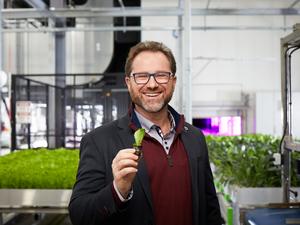The role played by Cincinnati’s startups as regional disruptors is unparalleled. The ideas born from these companies – ranging from fast-moving fintechs to AI-driven indoor vertical farms – motivate and inspire. Some of our up-and-coming firms want to change their industries, or even the world.
As 2022 ends, the Business Courier is stepping back to highlight companies that show outsized potential heading into the new year. In our fifth annual Startups to Watch list, we highlight 23 you need to know.
These early-stagers (companies that traditionally sit at a Series B funding level or below) have established solid traction – either with fresh capital raises, fast revenue growth, impressive hires or innovative solutions to novel problems. Those listed were flagged by local StartupCincy ecosystem players, venture capitalists or Courier staff.
DirecFunds

It’s been five years since Dan Orner and Kim Sharp first connected to start the buildout of West Chester Township-based DirecFunds. As the company readies to open its product set, and with an eight-figure fundraise in the works, it’s building up to be one of the city’s hottest startups to date.
DirecFunds is the first fintech to deal in online wire payments. Sharp called it one of the last brick-and-mortar banking services to face disruption.
For residential real estate purchases, for example, wired funds are required by law, meaning a customer still must visit a physical branch.
Aside from the convenience, DirecFunds is also designed to eliminate wire fraud. Cyber criminals have found the homebuying industry an increasingly easy target.
“You go online through Zillow and book appointments. You can do your mortgage application online,” Sharp said. “The whole experience is online until you get into the last part. The only company that’s cracked that technology and the regulatory barriers is Direcfunds.”
A $12 million to $15 million Series A fundraise is imminent. In October, the company launched its beta – putting its initial test product in the hands of Fortune 500s. Sharp named Fifth Third as its lead strategic banking partner.
In terms of industries served, the goal is to start with real estate and move to “complementary industries” like insurance, automotive and gaming. Given its novelty, it’s an offering that will no doubt continue to turn heads.
– Liz Engel
Bosa Life
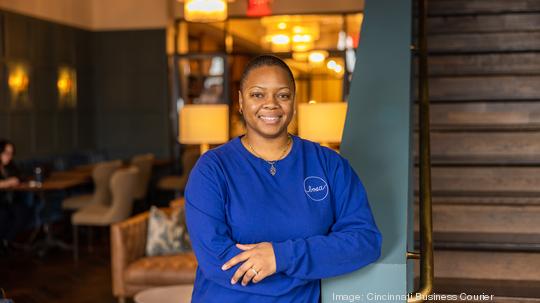
Bosa has been pegged by its founders as the must-have app for millennial working moms. CEO Anastasia Tarpeh-Ellis, a Cincinnati native who returned here pre-pandemic, and EJ Oruche, an Indiana native now living in Los Angeles, are working to build out the platform. It’s best described as a home for collaborative to-do lists, like scheduling kids’ doctor’s appointments and sharing grocery lists with a spouse, to more community crowd-sourced resume or vacation advice.
Bosa is in private beta testing before a broader beta rollout, likely in early 2023. Its waitlist is more than 700 strong.
The app’s continued stickiness will come from the team’s commitment to a co-creation approach. Those using the app will play an active role in building out the ultimate product.
In less than two years, Bosa has built relationships with several movers and shakers in the state. Those include locally based Ocean (Bosa participated in its tech-focused accelerator program in 2022), to Main Street Ventures (the company was awarded one of its “launch” grants in the summer) and Columbus-based venture capital firm Rev1 Ventures, which counts Bosa as a client.
– Liz Engel
Re-Assist
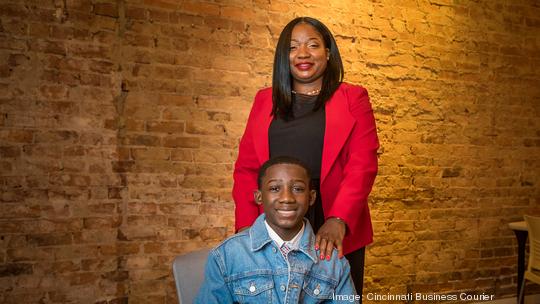
Not many startups can say they have the support of one of the nation’s most esteemed universities. But in September, Norwood-based health care company Re-Assist became the first in Ohio named a Massachusetts Institute of Technology’s “Solver team.” Part of the university’s initiative is to help grow and develop social entrepreneurs. It was a major win for the 2-year-old venture.
Re-Assist, launched by Ashley Barrow and her teenage son Aaron Bess, aims to digitize patient referrals, now a largely manual process. When patients move from an acute to post-acute level of care, for example, they’re often handed a paper list with names of potential resources. Re-Assist allows patients to take more control of their care planning process by filtering and choosing providers relative to insurance and location, which allows patients to make more educated decisions.
The goal is to reduce patient re-admissions, length of stay and expedite the referral process.
Locally, Re-Assist has worked with SoCap Accelerate, Over-the-Rhine mainstay Main Street Ventures and Mortar. Barrow is searching for a hospital partner with an innovation arm willing to pilot Re-Assist, a critical next step in proving the product’s effectiveness.
– Meg Erpenbeck
Get Together AI
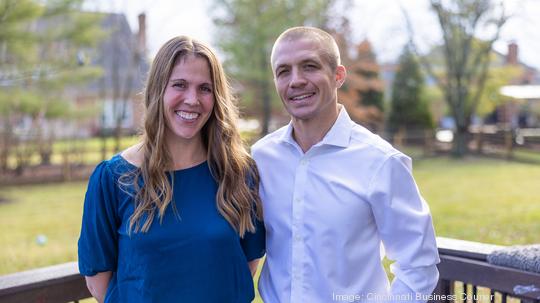
Mike and Maddie Bell know what it means to have a busy schedule. The working parents are both Fortune 100 veterans and now the founders of scheduling app Get Together AI, taking aim at a market now dominated by Calendly.
The Bells are the married duo behind the startup, a Cincinnati-based scheduling software that combs through users’ synced calendars to find the most ideal meeting time. The goal is to eliminate rounds of back-and-forth text messages or emails to determine when to meet, whether at work or in everyday life.
The year-old company has raised $1 million, with backers including Columbus-based Drive Capital, Ohio’s largest venture capital firm, and 11Tribes, a Chicago early-stage venture fund. The Bells have secured a patent for their scheduling algorithm as they work to roll out Get Together more fully.
The next step is to launch a beta test of its email-based solution. That’s coming in January, Maddie Bell told the Courier. The Bells are also working to grow Get Together’s base of paying clients, which now includes Cintrifuse. With all the growth already underway, expect to see more announcements in the months to come.
– Meg Erpenbeck

Founded by David Chimusoro, a Zimbabwean-born entrepreneur, Greenline Enterprises offers a nontraditional path to homeownership for renters, regardless of credit score or debt. Greenline secures the purchase of a two-family home and creates a property LLC. Its approved tenants/buyers then will make a monthly payment, building equity over time. Eventually the property would be owned in full by the residents.
Greenline was initially built to cover the upfront costs for Black applicants to become licensed in the real estate industry. That changed after stints at Main Street Ventures-sponsored Black Achievers and Flywheel Social Enterprise Hub.
The firm is now targeting a much larger issue, with a stronger revenue model to boot. It’s also turned powerful heads, including the Port of Greater Cincinnati Development Authority and developer Model Group.
Next year, Chimusoro plans to build a team and raise funds to make a down payment on Greenline’s first property. The portfolio will eventually grow to include single-family homes as his idea catches steam.
The need is urgent – given the market instability and social unrest that still dominates headlines – and massive. Chimusoro said its total addressable market is $597 billion.
– Liz Engel

Hearing loss is the most common occupational disease in the U.S. Enter Soundtrace, a Mason-based startup and SoCap Accelerate graduate that is developing a patent-pending solution that uses AI and internet of things technology. Its sound-monitoring system tracks noise levels in real-time and sends alerts so safety personnel can take immediate action. Count as one believer local giant Bob Sumerel, which is working with Soundtrace to beef up its monitoring and protective efforts. Expect a big fundraise soon.
– Liz Engel

Cincinnati is home to a growing number of startups creating gadgets, and Rekkie stands out. The company, launched in 2014, makes tech-enabled goggles for action sports, such as skiing and paintball. Its smart snow goggles are water-proof, have a heads-up display, an anti-fog lens system and mobile connectivity. In June, Rekkie landed a Main Street Ventures leap grant.
– Meg Erpenbeck
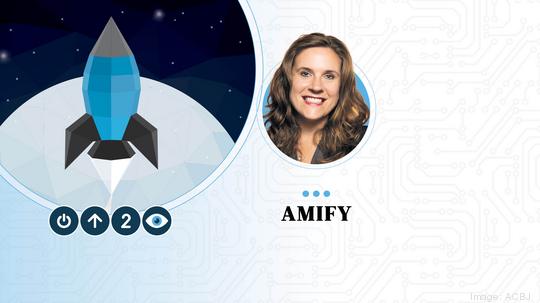
In November, Amify, an “Amazon-as-a-service” tech startup, announced its founder Ethan McAfee was stepping down, with Cincinnatian Christine McCambridge taking an elevated role as part of the transition. In fact, the Washington, D.C.-founded company no longer considers itself as dual headquartered. The Queen City now reigns supreme, with plenty of local branding and marketing talent to tap into.
– Meg Erpenbeck
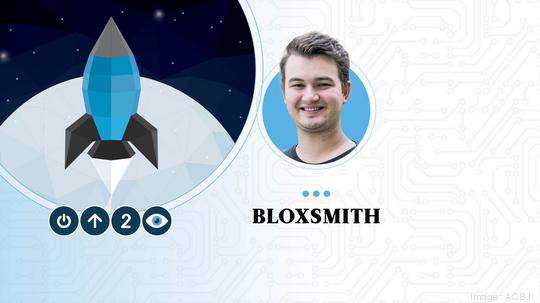
When it comes to student-led startups, Bloxsmith, led by Miami University’s Blake Faulkner, is one of the region’s best-known. The web 3.0 company, which serves as a marketplace for developers in the metaverse, continues to gain traction while garnering early attention from the venture capital community, including Silicon Valley’s Soma Capital.
– Meg Erpenbeck

Aaron Chow co-founded Voxel Technologies with a former college classmate in 2019. Since 2021, the duo have been pushing out technology to customers – catching the eyes of some of the city’s most notable VCs in the process.
Voxel, an AI-enabled additive manufacturing company, is working to bring an industrial form of 3D printing back into the forefront, years after GE Aviation made a big splash with its additively manufactured fuel nozzle tip (the additive manufacturing process, compared to traditional methods, results in complex, fully dense parts without the waste and in a fraction of the time).
Chow believes its possibilities are endless. But not every company has “armies of Ph.D. engineers at its disposal.” Voxel works as a consultant.
The company seems to be gaining the most traction among other startups, “hungry to disrupt,” he said.
Voxel, under one of its current medical device contracts, is working to scale to 100,000 parts a year. The goal: A million a year. Voxel is self-funded with income generated from consulting engagements. Expect a seed round announcement sometime in 2023.
– Liz Engel

University of Cincinnati-born Datirium’s flagship product, a platform called SciDAP, allows scientists to quickly perform routine data analysis. It helps researchers gain deeper insights and make decisions faster (within hours, not months). The company is co-founded by Artem Barski and Andrey Kartashov, who both have ties to Cincinnati Children’s Hospital. It received a $1.6 million National Institutes of Health grant and a $150,000 grant from the Ohio Third Frontier Foundation’s Start-up Fund to further develop the platform.
– Liz Engel

Farmed Materials caught our eye this year when the company, housed at Alloy Growth Lab in Norwood, announced a multimillion-dollar government contract to make natural rubber from dandelions. Turns out, a certain species of the weed, called taraxacum kok-saghyz, or TK, is considered a valuable alternative to rubber trees. It can be grown in temperate climates, including Ohio.
The team – Chuck Joffe (IBM, Lenovo), Adam Malofsky (Bioformix/Sirrus) and Steve Levin (GE, Bioformix/Sirrus, P&G) – is building a portfolio of like-minded startups under the ASI Materials umbrella. It’s a venture studio in the advanced materials and manufacturing space, with three main ventures so far: Farmed; Nano Catalytics, which is building a process for high-speed, bulk polymerization chemistry; and Rare Earth Technologies, which has developed a green, industrial-scale capability to separate rare earth elements. Expect the team to bring breakthrough technologies to market in sectors Cincinnati hasn’t seen before.
– Liz Engel

Tesouro is arguably the most stealth company on this list. Co-founders Sean Donovan and Angie Ammon (both formally of Finix and Vantiv) have released little public information about their Cincinnati-based fintech, other than it is an “acquirer processor,” targeting SaaS, or software-as-a-service companies that want to embed payments into their platform (an acquirer processor authorizes transactions and evaluates their validity.). Pre-launch, the company raised more than $30 million in venture capital. It counts Columbus-based Drive Capital, the Ohio venture firm juggernaut, as its largest funder.
– Liz Engel

When a startup ecosystem celebrates a major exit, one of the hopes is that it will spur a new generation of companies. In Cincinnati, that’s happening thanks to Vndly, the software startup that sold to Workday for $510 million. That’s the region’s largest exit to date. The first company launched in Vndly’s wake is data startup Pantomath, whose founder Somesh Saxena is the brother of Vndly co-founder Shashank Saxena.
Pantomath is creating a cloud-based platform to help large organizations fix broken data pipelines, giving companies more transparency into their operations so problems can be addressed faster. Its mission is so critical that Pantomath was able to secure $4 million in seed funding, led by Bowery Capital and Epic Ventures, big-name firms based in New York and Salt Lake City, just weeks after Saxena launched it in February after leaving his job at GE Aviation.
Less than a year later, Saxena already has a team of 11 full-time employees and a product launched with multiple paying customers. Over the next year, Pantomath’s team will onboard even more clients, including multiple Fortune 500 companies.
– Meg Erpenbeck

Joel Willis is best known for helping catapult The Dad into social media stardom, growing the humor brand to 15 million followers. The GE Aviation alum left The Dad earlier this year and is now onto his next venture, Channel 3. The new company aims to serve as a social networking site dedicated to gamers, and given Willis’ track record, it’s sure to have major scalability.
– Meg Erpenbeck

Cinthesis is a contract research organization based at the University of Cincinnati. It’s a UC Venture Lab-backed startup, developing a method of “green chemistry” to make products – including agrichemicals, pharmaceuticals and plastics – more environmentally friendly. Through the Venture Lab, the company connected with entrepreneur-in-residence Edward Sawicki, a retired P&G executive, who is currently leading the company as its CEO.
– Liz Engel
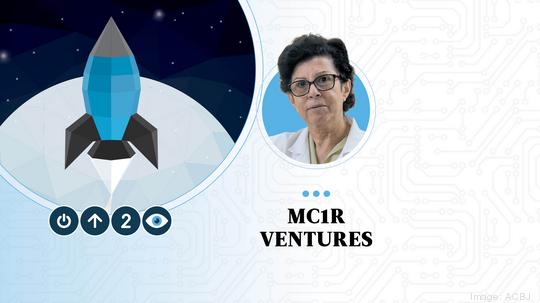
Zalfa Abdel-Malek, a professor of dermatology at the University of Cincinnati College of Medicine, has spent more than two decades researching how to prevent melanoma, the deadliest form of skin cancer. Now, she’s using her expertise to develop a way to allow people to tan while also lowering their risk of skin cancer, skin damage, premature aging and wrinkles.
Abdel-Malek is the power behind MC1R Ventures, a startup creating a topical solution that offers sunless tanning and activates the DNA repair capacity of pigment cells within the skin.
MC1R has received seeding funding from the UC Venture Lab, following completion of its pre-accelerator program. Abdel-Malek and her team are in the pre-clinical stage of product development. Once that’s complete, they’ll be able to begin tests on human skin – a critical step in commercialization.
If those tests are successful, MC1R’s product could be on shelves within the next couple years, setting the Cincinnati startup up to be a game-changer for both health care and the cosmetics industry.
– Meg Erpenbeck
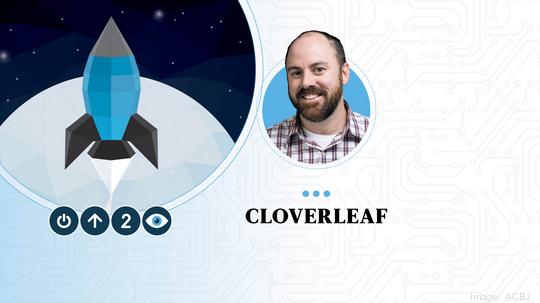
Cloverleaf, an automated coaching system, is a familiar face in the local startup scene, a longtime Northern Kentucky standout. With the groundwork officials laid this year, 2023 is slated to be a big one. Not only does the firm, run by CEO Darrin Murriner, have $9 million in fresh funding, but it recently moved across the river to downtown’s Edge building.
– Meg Erpenbeck

Intersect Agriculture, a recent Flywheel Social Enterprise Hub graduate, wants to upcycle food waste into nutritious animal feed, by growing and harvesting black soldier fly larvae. The company, just over a year old, is among the earliest in terms of development on our list, but its process could generate other byproducts with agricultural market value.
– Liz Engel

EdgeEnergy launched in 2020, and the Cincinnati-based electric vehicle infrastructure startup, helmed by former Procter & Gamble executive Greg York, is ready to rollout its technology, which makes it cheaper and faster to deploy ultra-fast charging, nationwide. In October, EdgeEnergy announced a pre-Series A funding round, set to close in 2023. The firm anticipates installing more than 300 of its units in the new year.
– Meg Erpenbeck

Eyas is developing lifesaving MRI technology designed to serve the smallest patients — infants in neonatal intensive care units. Such premature and sick babies are usually too delicate to transport, or they must be accompanied by NICU staff during a multi-hour imaging process. Eyas has been steadily fundraising since 2017, including $8 million in new capital in 2022, per a U.S. Securities and Exchange Commission filing. Partners include CincyTech and Cincinnati Children’s Hospital.
– Liz Engel
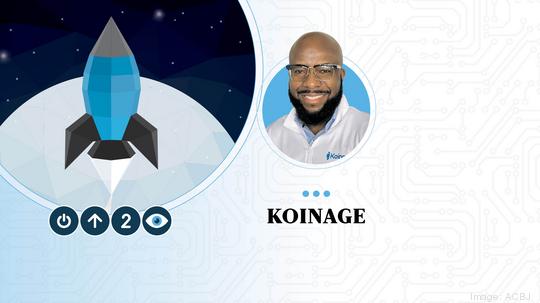
Franklin-based fintech Koinage is reimagining how merchants and shoppers handle loose change. After receiving a cash payment, merchants can electronically pay loose change. (Koinage users can then transfer that amount to their checking account, debit card, Venmo, etc.). Led by founder and CEO Chika Okere, the company has lofty goals for 2023. It’s looking to raise $500,000 via crowdfunding site Wefunder and expects to land more than 3 million users in the year following its launch.
– Liz Engel
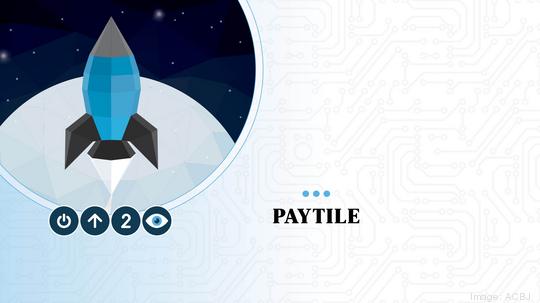
Anu Vora sold her first company, Admit Ally, in 2020, and in October, her latest venture, PayTile, emerged from stealth mode. PayTile blends first-of-its-kind features so users can pay or tip people nearby – albeit privately – while businesses can offer rewards to increase foot traffic, using proprietary geolocation and proximity technology.
– Meg Erpenbeck
